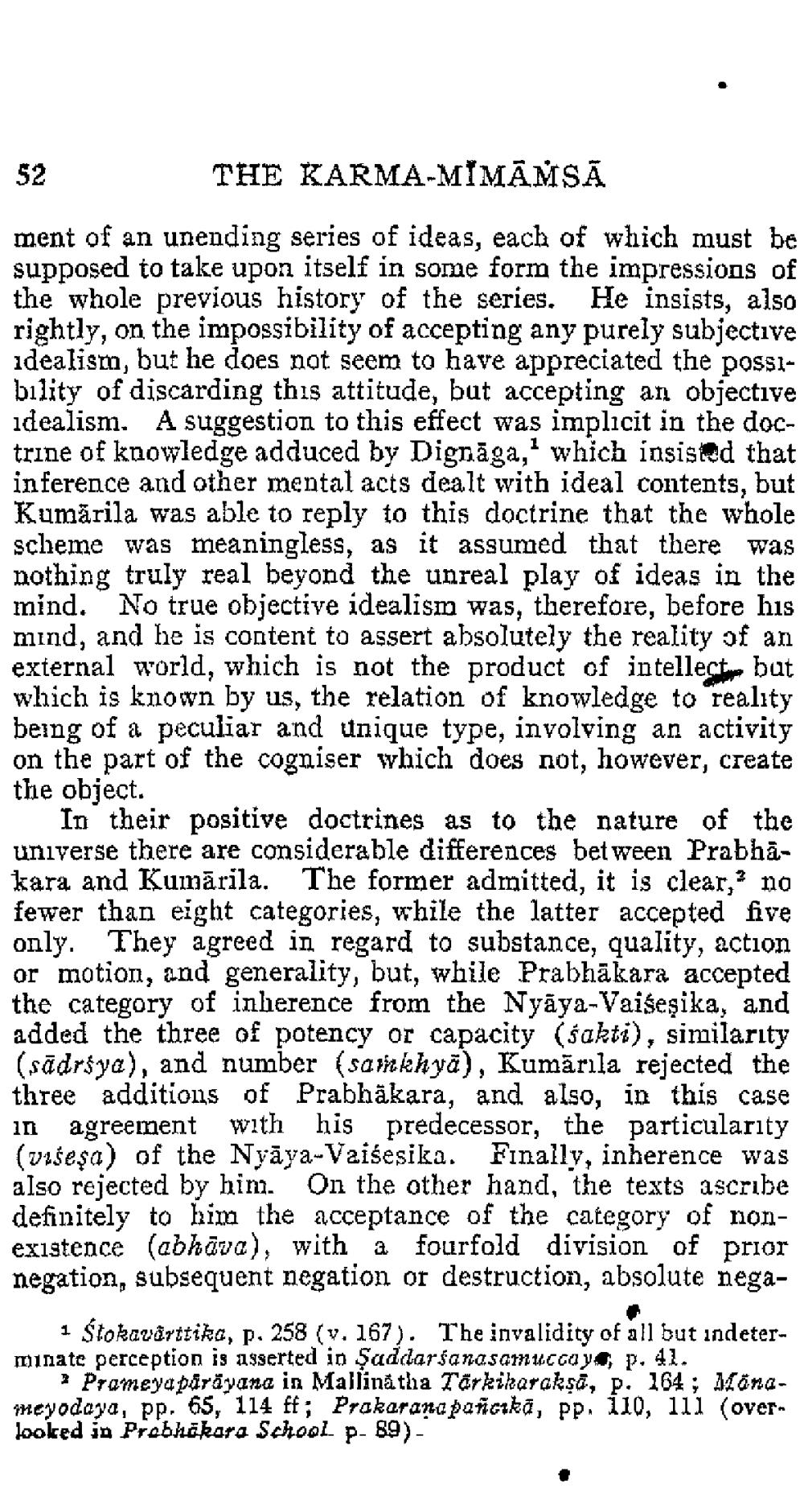________________
52
THE KARMA-MIMĀMSĀ
ment of an unending series of ideas, each of which must be supposed to take upon itself in some form the impressions of the whole previous history of the series. He insists, also rightly, on the impossibility of accepting any purely subjective idealism, but he does not seem to have appreciated the possibility of discarding this attitude, but accepting an objective idealism. A suggestion to this effect was implicit in the doctrine of knowledge adduced by Dignāga,' which insisted that inference and other mental acts dealt with ideal contents, but Kumãrila was able to reply to this doctrine that the whole scheme was meaningless, as it assumed that there was nothing truly real beyond the unreal play of ideas in the mind. No true objective idealism was, therefore, before his mind, and he is content to assert absolutely the reality of an external world, which is not the product of intellect, but which is known by us, the relation of knowledge to reality being of a peculiar and unique type, involving an activity on the part of the cogniser which does not, however, create the object.
In their positive doctrines as to the nature of the universe there are considerable differences between Prabhakara and Kumārila. The former admitted, it is clear,? no fewer than eight categories, while the latter accepted five only. They agreed in regard to substance, quality, action or motion, and generality, but, while Prabhākara accepted the category of inherence from the Nyāya-Vaiseşika, and added the three of potency or capacity (sakti), similarity (sādrsya), and number (sarkhyā), Kumārıla rejected the three additions of Prabhakara, and also, in this case in agreement with his predecessor, the particularity (višeşa) of the Nyāya-Vaiśesika. Finally, inherence was also rejected by him. On the other hand, the texts ascribe definitely to him the acceptance of the category of nonexistence (abhava), with a fourfold division of prior negation, subsequent negation or destruction, absolute nega
1 Stokavárttika, p. 258 (v. 167). The invalidity of all but indeterminate perception is asserted in Saddarsanasamuccay, p. 41.
> Prameya parāvana in Mallina tha Tarkikaraksa. D. 164 : Mänameyodaya, pp. 65, 114 ff; Prakaranapañoikā, pp. 110, 111 (overlooked in Probhākara School p- 89) -




